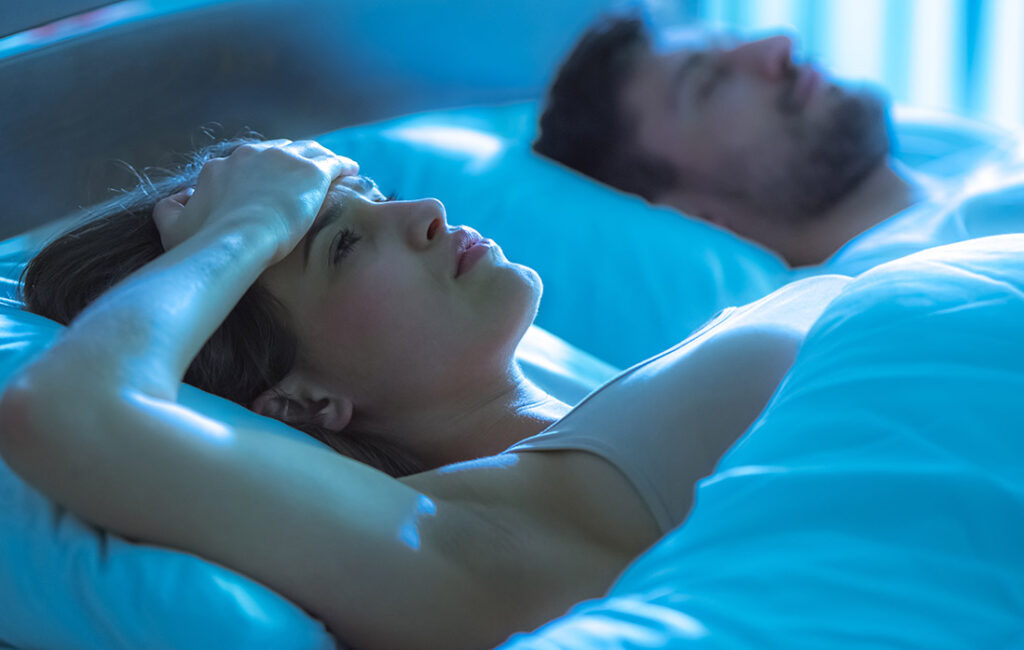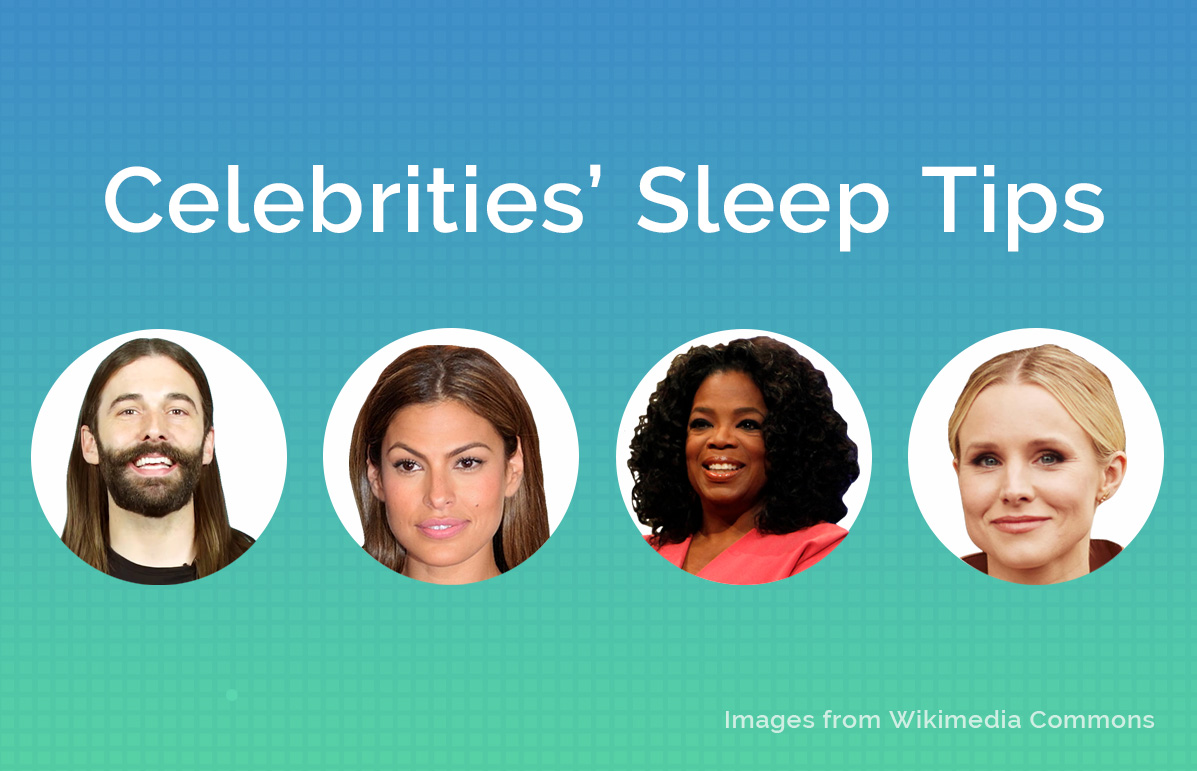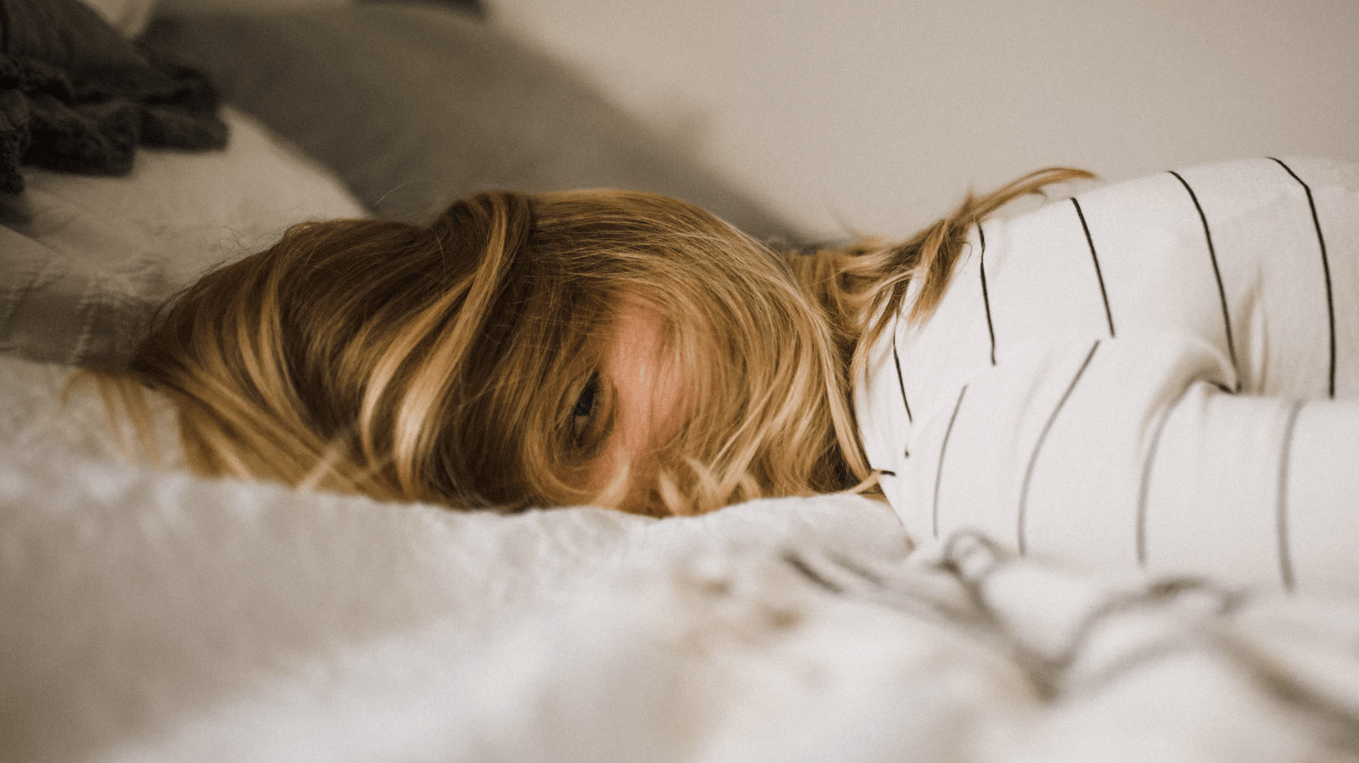We’ve all woken up in the middle of the night. If we’re lucky, we roll over and go back to sleep. If we’re unlucky, we may lay there thinking about why Chandler and Rachel were introduced to each other in the pilot episode of Friends when they supposedly knew each in high school and college. Contemplation of pesky plot holes aside, waking up at night is actually quite normal — so says Dr. Daniel Rifkin, founder of Ognomy and creator of a viral TikTok video that has racked up 996k views in the last few weeks. To answer this burning question on everyone’s mind, Rifkin explains that waking up in the middle of the night is quite common and usually no cause for concern — if you’re able to “roll over and go back to sleep.”

Sleep Fragmentation Is Normal
Digging a little deeper into the topic, Rifkin explains, “Waking up briefly and easily returning to sleep is common as we age. This is normal sleep fragmentation of aging and part of the ontogeny of sleep.”
Most people (mistakenly) idealize sleep, thinking our heads are supposed to hit the pillow and its lights out until the alarm goes off, Rifkin tells Sleepopolis that sleep doesn’t work that way. “As adults, we no longer sleep like we did when we were adolescents and young adults,” he says. “Going to sleep and sleeping all the way through to the alarm clock is actually abnormal later in life. Waking once, twice, even three times or more becomes normal.” He notes that in the same way, “our skin loses its elasticity and starts to sag, or our muscles begin to weaken, our sleep loses its consolidation ability.”
And while some degree of sleep fragmentation is normal, Rifkin says duration matters. “These awakenings or arousals [should be] brief. If one awakens and has trouble getting back to sleep, this can tend toward sleep maintenance insomnia,” a type of insomnia in which difficulty staying asleep and early morning awakening are hallmarks.
There’s No Need To Worry
While there’s usually no cause for concern, Rifkin urges anyone who regularly experiences nighttime waking “to make sure those awakenings are not associated with a sleep disorder like sleep apnea or periodic limb movements of sleep. In both cases, he notes that arousals and awakenings tend to occur much more frequently.”
Understandably, nighttime wakings and irregular sleep-wake cycles may spark concern for some, as both have been associated with disruptions to the circadian rhythm. But according to Rifkin, short nighttime arousals aren’t likely to throw anything off track. But to help your circadian rhythm maintain its integrity, Rifkin suggests “waking at the same time each day, getting some exposure to bright light.”
When Does Sleep Fragmentation Become a Problem?
According to Rifkin, “Sleep fragmentation becomes a problem if awakenings become excessive or daytime sleepiness ensues.” He urges anyone feeling a little worse for wear after nighttime wakings to “see a sleep medicine specialist to rule out the possibility of another sleep disorder.”
Other signs of trouble stemming from nighttime waking that may indicate it’s time to see a doctor include:
- Microsleeps
- Mood swings
- Anxiety
- Impaired memory or cognition
What Should You Do If You Wake Up at Night?
“I always like my patients to remember the mantra: The harder you try to sleep, the more difficult it becomes,” says Rifkin. “Should you awaken in the middle of the night, just roll over, get comfortable, and let sleep come back to you. Do not look at the clock, do not go on your cell phone, and do not get frustrated. Remember, the harder you try to fall asleep, the more difficult it becomes. Let sleep come to you!”
Other Tips for Healthy Sleep
“The key [to good sleep] is to maintain a lifestyle and environment that is conducive to sleep,” says Rifkin. The first order of business is to get enough of it. “Although the average adult requires 7-8 hours of sleep per night to feel fully rested the next day, this is only the average on a typical bell curve. Some people feel fantastic on 6 hours of sleep, and others require as many as 9 hours to engage in their usual activities of daily living without feeling sleepy.”
Beyond getting enough shut-eye each night, Rifkin reminds readers to keep a consistent wake schedule and practice good sleep hygiene (to include a cool, dark, and quiet environment). But most of all, he says, “Allow sleep to come to you at a rather consistent time each night! Make sleep a priority, and go to bed when you’re sleepy.”

‘Love is Blind’ Contestants Claim the Show Led to Sleep Deprivation

10 Celebrity Sleep Tips and Tricks For a Better, More Restorative Night’s Sleep

Best Sunrise Alarm Clocks

11 Types of Insomnia — Causes and Treatments
Sources
Rifkin, Dr. Daniel. Personal interview. April 2024.
